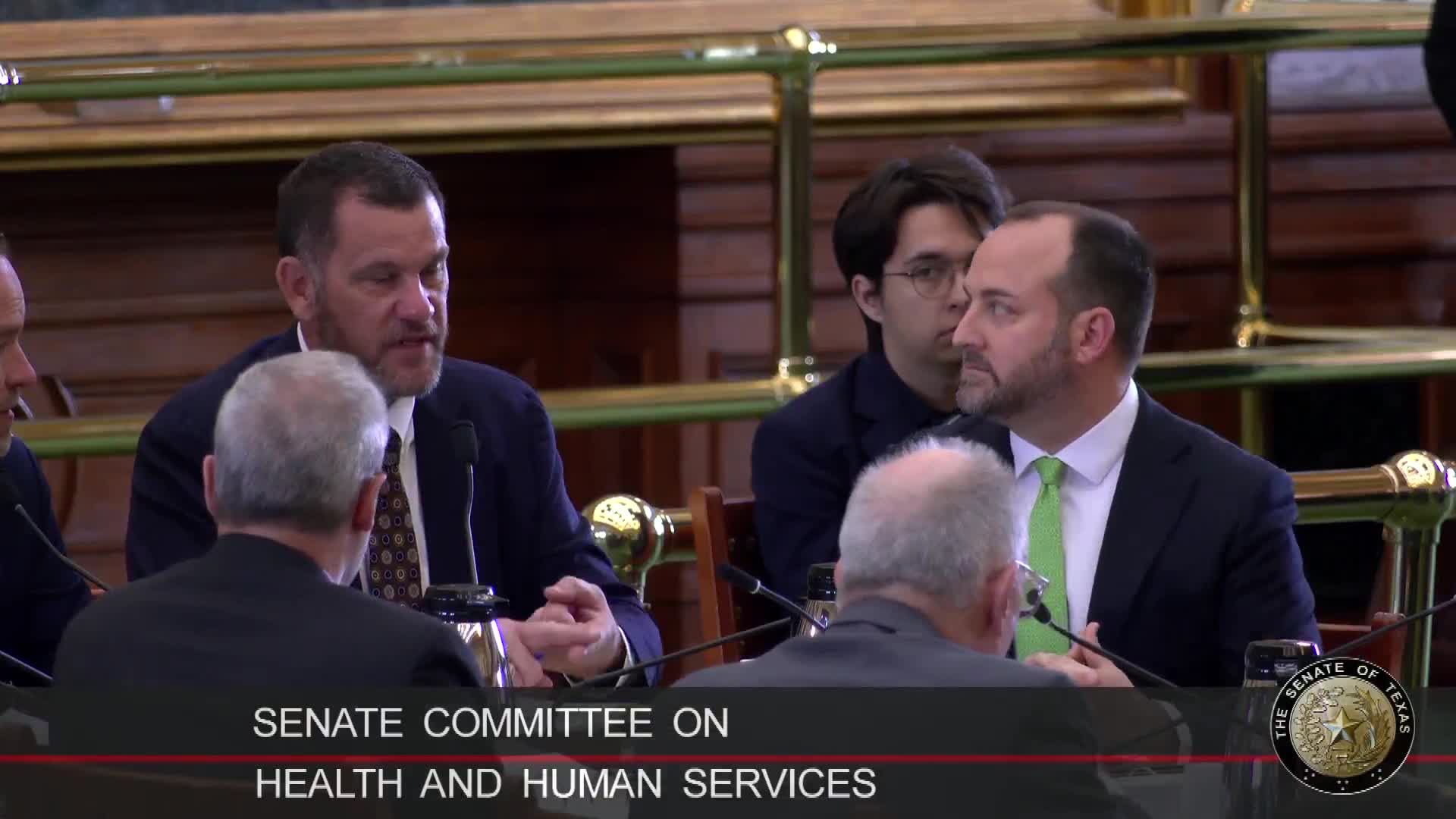Texas Senate Discusses Rural Healthcare Access and Economic Impact on Communities
May 07, 2025 | Committee on Health & Human Services, Senate, Legislative, Texas
This article was created by AI summarizing key points discussed. AI makes mistakes, so for full details and context, please refer to the video of the full meeting. Please report any errors so we can fix them. Report an error »

During a recent Senate Committee on Health and Human Services meeting, the urgent need for improved healthcare access in rural Texas took center stage. Lawmakers emphasized that providing healthcare in these areas is not just a moral obligation but also a critical economic issue for the state.
One key discussion highlighted the challenges of delivering specialized medical services, such as orthopedic and obstetrical care, in rural communities. A committee member pointed out that while not every rural county can support a full range of medical services, there is a pressing need to address the healthcare requirements of pregnant women and other vulnerable populations. "Every rural county in Texas has pregnant women. How do we fulfill that need?" they asked, underscoring the importance of maintaining population growth in these areas.
The conversation also touched on the role of nurse practitioners in filling gaps in primary care. It was noted that in many smaller communities, nurse practitioners often outnumber physicians, providing quality care at potentially lower costs. This model could be vital for ensuring that rural hospitals remain viable and can meet the healthcare needs of their communities.
As the meeting progressed, the committee acknowledged the broader implications of healthcare access on the state budget and rural economies. With 85% of Texas classified as rural, the committee stressed that without adequate healthcare infrastructure, young people may be discouraged from staying or returning to these areas, threatening the very fabric of rural Texas.
The committee plans to continue exploring these issues, with a focus on ensuring that rural hospitals can provide essential services. As discussions evolve, the importance of addressing healthcare disparities in rural Texas remains a top priority for lawmakers.
One key discussion highlighted the challenges of delivering specialized medical services, such as orthopedic and obstetrical care, in rural communities. A committee member pointed out that while not every rural county can support a full range of medical services, there is a pressing need to address the healthcare requirements of pregnant women and other vulnerable populations. "Every rural county in Texas has pregnant women. How do we fulfill that need?" they asked, underscoring the importance of maintaining population growth in these areas.
The conversation also touched on the role of nurse practitioners in filling gaps in primary care. It was noted that in many smaller communities, nurse practitioners often outnumber physicians, providing quality care at potentially lower costs. This model could be vital for ensuring that rural hospitals remain viable and can meet the healthcare needs of their communities.
As the meeting progressed, the committee acknowledged the broader implications of healthcare access on the state budget and rural economies. With 85% of Texas classified as rural, the committee stressed that without adequate healthcare infrastructure, young people may be discouraged from staying or returning to these areas, threatening the very fabric of rural Texas.
The committee plans to continue exploring these issues, with a focus on ensuring that rural hospitals can provide essential services. As discussions evolve, the importance of addressing healthcare disparities in rural Texas remains a top priority for lawmakers.
View full meeting
This article is based on a recent meeting—watch the full video and explore the complete transcript for deeper insights into the discussion.
View full meeting
